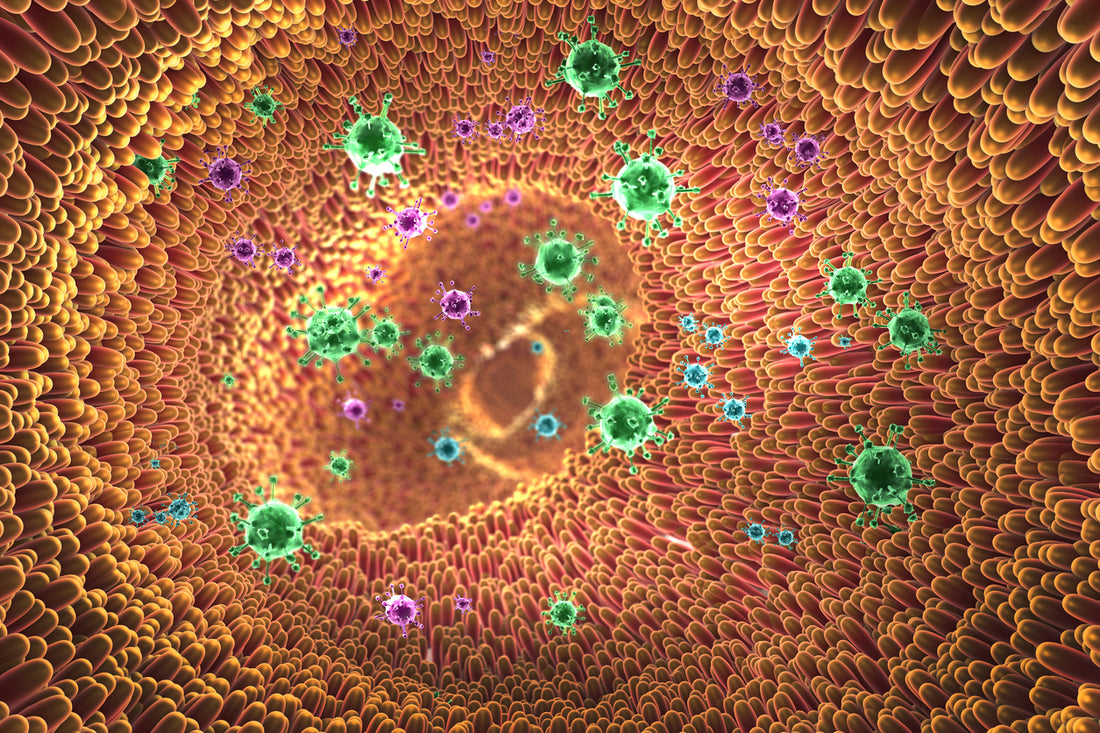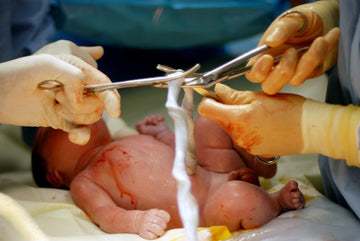Group B Strep Pregnancy Test During Pregnancy - Stay Informed

What is Group B Strep?
Group B Strep is NORMAL. It is a normal bacteria found in the gut.
If it is normal, why are we made to believe that it is so scary to have? Even deadly? The problem is thought to be when it colonizes (multiplies) during pregnancy and becomes a danger to your health and potentially to your baby’s health. GBS will not kill your baby unless it goes completely undetected and untreated.
Your birth care provider will perform the Group B Strep Test sometime during weeks 35-37. I would recommend doing it as early as they allow so you can get your results quickly and take action to “get rid” of the GBS before the baby comes – if your test reads positive. Remember though that on any given day you can test positive or negative (Because the bacteria are always present, it just depends on the amount on the day you are tested). So performing preventative measures or treatment protocol can be done, and then you should ask for another test to be done.
A positive culture means that a woman is colonized with GBS. It does not mean that she has GBS disease or that her baby will become ill. Rather, it means that the care provider will plan labor and delivery and newborn care with this in mind. If you test positive, you can opt for antibiotics when you are in active labor and/or choose to try alternative therapies – the key is that you have options.
Most researchers have found that babies do not contract GBS through the birth canal, but instead while in utero. The bacteria are passed to the baby through the amniotic fluid – not during birth.
Preventative Measures
If you have had one or more yeast infections during your pregnancy, that is a sign that your good bacteria in your gut is becoming out numbered.
Possible ways to avoid testing positive:
- Eat healthy and avoid excess sugar, as sugar feeds the bad bacterial growth
- Avoid antibiotics during pregnancy
- Increase your probiotic intake two weeks prior to the test
- Insert a garlic clove vaginally nightly for a week or two before the test day. Bacteria cannot live in the presence of garlic.
Natural Treatment
A natural treatment will strengthen the immune system and help to restore healthy vaginal flora, enabling the body to correct bacterial overgrowth.- High potency probiotic supplement – at least 4 billion cells per dose (and probiotic foods)
- Vitamin C – 1000mg per day with bioflavinoids – to support the immune system and strengthen the amniotic sac to prevent early rupture which can increase the likelihood of GBS infection.
- Burdock root and echinacea root infusion – drink 1 cup per day. To prepare the infusion, steep 1/2 ounce of each of these herbs in 4 cups of boiling water for 2 hours. Strain and take the above dose, storing the rest in the refrigerator for the next day.
- Echinacea and astragalus tinctures twice daily, 1/2 tsp each.
- Grapefruit Seed Extract – 15 drops daily.
- Plenty of fresh garlic every day. This could include:
- Garlic tea – Chop a clove of fresh garlic and mix with a teaspoon of honey. Swallow this without chewing it. This can be done several times a day, preferably with a meal.
- Garlic elixir – Blend 1/2 cup of honey, 1/4 cup of apple cider vinegar, and half a bulb of fresh garlic in your blender until liquidy. Take 1/2 teaspoon up to twice a day. Adjust the taste as necessary with more or less of the honey or vinegar.
- Chop fresh garlic onto a salad, or mix with olive oil to use as a dressing or dip French bread into this as a condiment.
- Take garlic pearls according to the dosage on the brand you purchase.
- Follow a Vaginal Garlic Protocol
Antibiotic Risks and Options
It is important to understand that a baby is not just at risk for picking up ‘harmful’ bacteria, but he receives essential healthy bacteria and other micro-flora when passing through the birth canal. The exchange of micro-flora during a vaginal birth marks the very beginnings of your baby forming his/her immune system. These bacteria help create your baby’s immune system and provides the foundation to a strong gut health.
Antibiotic use during pregnancy and birth puts this natural, healthy exchange of bacteria at risk. Antibiotics should only be used if absolutely necessary – and when all other methods of correcting bacterial imbalance have been exhausted. Again, antibiotics kill all bacteria -good and bad- in your system and do the same in your baby. When given antibiotics for any reason during labor, the chances of your baby developing thrush (yeast infection) is high. Also, since the good bacteria is gone too, you now know longer have a defense system working in your favor to protect you from all the other germs, bacteria and viruses you will be exposed to in the hospital. Antibiotics also lead to the problems of ‘super bugs’ (antibiotic resistant) which are resistant to normal strength antibiotics.
The choice is yours to make with your birth team. Educating yourself and having a plan will help calm your mind and feel confident in your decisions.
Resources:
- http://www.ontariomidwives.ca/images/uploads/guidelines/No11CPG_GBS_May_2012FINAL.pdf
- http://evidencebasedbirth.com/groupbstrep/
- http://www.ncbi.nlm.nih.gov/pubmed/12900477
- http://www.ncbi.nlm.nih.gov/pubmed/15900833
- http://www.ncbi.nlm.nih.gov/pubmed/18669721
- http://www.cdc.gov/mmwr/preview/mmwrhtml/rr5910a1.htm
- http://www.ncbi.nlm.nih.gov/pubmed/15994612
- http://www.ncbi.nlm.nih.gov/pubmed/15900833
- http://www.preciouspassage.com/treating_group_b_strep.html
The content of this website, such as copy, images, graphics and any other material contained on this website ("Content") is for informational purposes only and does not constitute medical advice; the Content is not intended to be a substitute for professional medical advice, diagnosis, or treatment. Always seek the advice of a physician or other qualified health provider with any questions you may have regarding any medical condition. Never disregard professional medical advice or delay in seeking it because of something you have read on this website. In the event of a medical emergency, call your doctor or 911 immediately. This website does not recommend or endorse any specific tests, physicians, procedures, opinions, or other information that may be mentioned on this site. Reliance on any information provided by this website is solely at your own risk.







